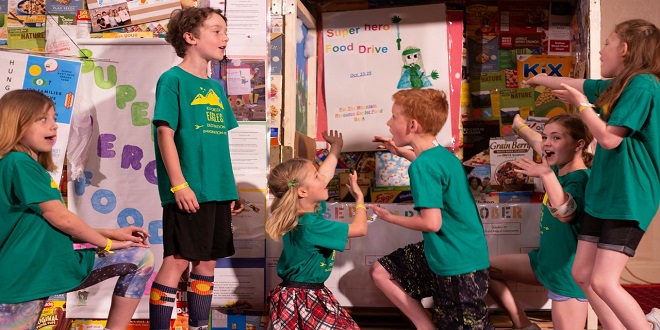Top Benefits of Project-Based Learning for Preschoolers

Children are by nature quite inquisitive and curious. A great way of satiating and using their curiosity to further their understanding and knowledge of the world around them is by introducing them to a PBL (Project-Based Learning) approach. Here is a teaching approach which builds up a sense of curiosity and wonder in children instead of stifling these qualities by forcing them to memorize large volumes of information. Moreover, a project-based learning approach is suitable for teaching all types of children. It is one of the better approaches to teaching students with special needs or learning disabilities. Furthermore, a project-based learning approach is suitable for teaching students of every age group, ranging from preschoolers to college level students. Additionally, project-based learning also transcends the language barrier and is well suited for teaching non-native speakers of the language of instruction.
Today, the field of education has changed a lot. Schools have readily adopted digital teaching and management tools including some of the best school management software such as eLearning portals, student attendance management system, smart classes and likewise in order to improve their productivity. A project-based learning approach will help the educators in achieving peak productivity in their class while making sure that the students enjoy their learning. Here are the top reasons why using a PBL approach for teaching preschoolers can work out well for them. So, without further ado, let’s dive in…
Keeps Children Engaged-
A project-based learning approach encourages the students to use their naturally curious mind in the class. For instance, a question about dinosaurs can turn into multiple sessions of activities and useful lessons based on the theme which the children find interesting while also developing necessary skills such as creative thinking, collaboration and research with the students. Thus, a project-based learning approach is a great fit for teaching preschoolers as it helps in keeping them engaged and prevents them from getting distracted from the topic being discussed in the class.
Language Development-
As children collaborate and learn, they encounter new words and phrases every so often, which plays a crucial role in guiding their language development. Moreover, by asking the kids to present their findings in written form as well as through short presentations, educators can further speed up the development of language skills in preschoolers. This will also help the kids in gaining greater confidence and will also benefit students with speech impediments and delays. In this way, adopting a PBL approach in your preschool classroom may help the kids in developing their language skills and being more confident.
Student Collaboration-
Due to the highly interconnected world we live in, collaboration is a highly sought after skill in the modern workplace. Using PBL for educating preschoolers will introduce the kids to collaboration and develop in them the ability of mutual cooperation with their classmates. With PBL, students learn to work in groups, listen and be listened to, resolve conflicts and work their way towards achieving a common objective. This also helps them develop a better relationship with their educators. Above all, collaboration also helps the students to enjoy their learning and makes their learning experience worthwhile.
Creativity and Problem Solving-
A PBL approach allows kids the opportunity to exercise and develop their creative thinking. This helps them in developing the ability to think about a problem in various dimensions thereby improving their problem-solving skills. They say that the human brain is almost fully developed before the age of 5 years. Therefore, teaching preschoolers using a project-based learning approach is a great idea for developing critical thinking, creativity and problem solving skills in them.
Active Learning-
Research shows that an active learning environment is significantly more effective in elevating the level of student engagement and learning outcomes in a class when compared with the traditional instruction-based teaching approach. A project-based learning approach allows students to be more actively engaged in the learning process and empowers them to take ownership over their learning through projects. This directly translates to better student comprehension, engagement and retention of the topic being discussed in the class.
In all seriousness, preschool is as important a stage in a child’s intellectual development as any. Therefore, educators should try to develop a highly engaging and effective learning environment for their little stars using novel teaching approaches such as Project-Based Learning.





